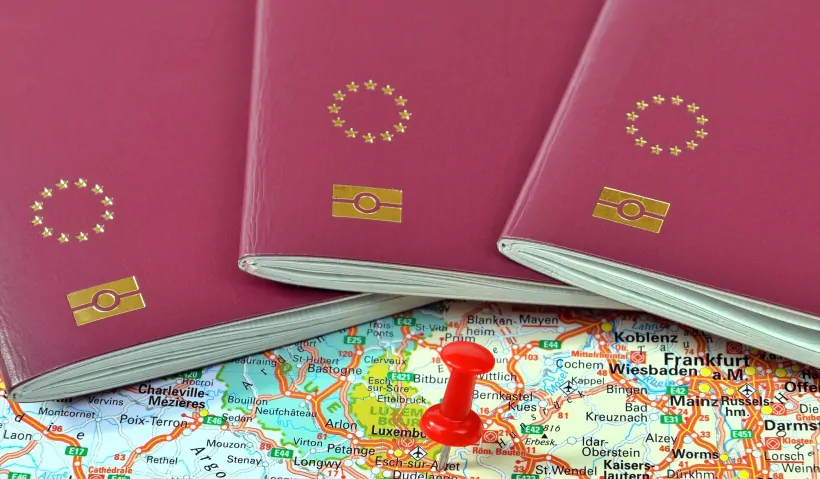As the European Union expresses concerns about citizenship by investment schemes, Spain is contemplating ending its golden visa program.
Acquiring the right to live and work in another country can often be a lengthy and challenging process. However, for those with substantial financial resources, the process can be much simpler.
Golden visas provide wealthy individuals the opportunity to effectively ‘purchase’ residency rights, often without the need to reside in the country.
These visas have gained popularity within the European Union, especially among those seeking to escape political decisions like Brexit, which may restrict their rights.
Given the political and social unrest in the US in recent years, applications for golden visas from Americans were also expected to increase.
However, golden visas are gradually being phased out across Europe. For example, Portugal revised its program in October, removing real estate investment as a qualification for golden visa applications to curb property speculation.
In the same month, the Netherlands announced it would end its golden visa scheme in January 2024.
Spain has also announced plans to follow suit. The country had previously proposed stricter requirements for its golden visa last year, and in December, the government’s junior coalition partner, Sumar, supported discontinuing the scheme. Spain is now eliminating the option of real estate investment in exchange for a visa.
What Are Golden Visa Schemes?
Golden visas, or residence by investment schemes, allow individuals to obtain residency permits by purchasing property or making significant investments or donations.
Applicants must be over 18, have a clean criminal record, and possess sufficient funds for the required investment.
There are also golden passports, or citizenship by investment programs, which allow foreigners to gain citizenship through similar means.
For EU countries, this also grants access to many benefits of EU residency, including free movement between member states.
Why Is the EU Against Golden Visas and Passports?
In 2022, the European Commission urged EU governments to halt the sale of citizenship to investors.
While different from golden visas, which offer permanent residency rather than citizenship, this move was part of a broader effort to regulate the multi-billion euro industry. Following the Ukraine war, there were concerns these schemes could pose security risks.
Brussels also called for a review of whether sanctioned individuals due to the war were holding golden passports or visas.
The EU has previously stated that these schemes threaten security, transparency, and the values underlying the European Union.
In October 2022, the European Commission advised Albania against developing an investors’ citizenship scheme, citing risks related to security, money laundering, tax evasion, terrorist financing, corruption, and organized crime infiltration. Albania has since suspended its plans for a golden visa.
Threats also come from outside the EU. In October 2022, the European Commission proposed suspending Vanuatu’s visa waiver agreement due to golden passport risks, as it allows nationals of third countries to gain Vanuatu citizenship and visa-free access to Schengen zone countries.
Which Countries Have Scrapped Their Golden Visa Schemes?
In February 2022, the UK government ended its golden visa scheme, which allowed wealthy foreign nationals to settle in the country in exchange for part of their wealth. This was part of efforts to curb dirty money from Russia.
In February 2023, Ireland also terminated its golden visa scheme—the Immigrant Investor Programme—which offered Irish residence for a €500,000 donation or a three-year annual €1 million investment. The scheme was suspended for Russian citizens in March 2022 due to sanctions following the Ukraine invasion. The final decision to end the scheme resulted from various international reports and internal reviews.
In February 2023, Portugal’s Prime Minister António Costa announced plans to end the country’s residence by investment scheme to tackle property and rent price speculation. Until then, foreigners could purchase property or make capital transfer investments in exchange for residency. Between January and August 2022, the program brought nearly €398 million to Portugal.
Madeira opposed ending Portugal’s golden visa by real estate, which attracted many high-income foreign residents to the region. Since October 6, 2023, new applications for golden visas through real estate investment in Portugal are no longer accepted, though the new rules do not apply retroactively to existing visa holders.
Which EU Countries Still Offer Golden Visas and What Are the Requirements?
Few EU countries still offer golden passports, with Malta being one of them. The minimum investment starts at €690,000, providing citizenship within 12 to 36 months.
Several countries still offer golden visa schemes. Here are some examples of the requirements:
Spain: Launched in 2013, Spain’s golden visa program allows non-EU nationals to obtain residency by investing more than €500,000 in real estate or certain businesses. However, the government plans to end the real estate investment route soon. Other options include starting a business, holding company shares, bank deposits worth at least €1 million, or investing €2 million in government bonds.
Italy: Introduced in 2017, Italy’s golden visa grants non-EU nationals a two-year residence permit in exchange for a minimum investment of €500,000 through an Italian limited company. Visa holders can include family members in the application and benefit from a special tax regime. After 10 years, they may be eligible for citizenship.
Greece: Known for its quick process, Greece offers golden visas within 60 days of application. The investment threshold was raised to €500,000 from €250,000 in September 2023 to make real estate more affordable for locals. The new threshold applies from May 1, 2023, in Greater Athens, Thessaloniki, Mykonos, and Santorini, while the €250,000 threshold remains for other regions. Golden visa holders aren’t required to stay in Greece to retain their visas. By the end of 2021, Greece had received 9,500 applications for these schemes, among the highest in Europe.
 +49 175 370 2510
+49 175 370 2510

0 Comments